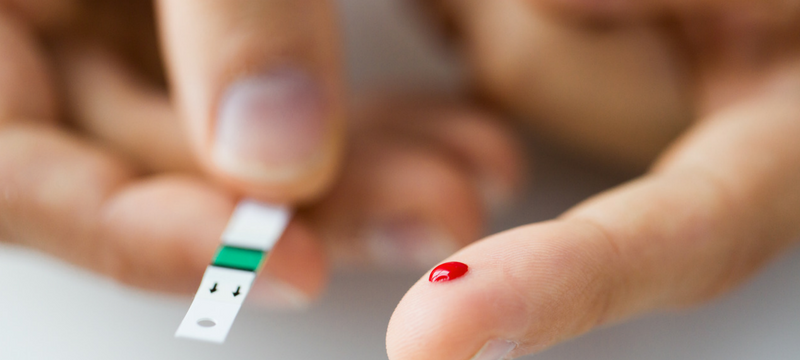To mark National Diabetes Month, let’s discuss the importance of conception planning with pre-existing diabetes. Because pregnancy with diabetes brings greater risks, you will need to understand how the changes occurring at and after conception will affect your condition. To provide the best care for your child, you must take great care of yourself as well. Here are some things to know.
The need for planning
Diabetes comes with challenges, and to help give your baby the best chance at a healthy life, it is recommended to have your diabetes under control before you become pregnant, which includes your A1C level. If your blood glucose level is high at the moment of conception or during your early weeks of pregnancy, you may be at a higher risk for miscarriage or birth defects, especially in your baby’s brain, spinal cord and heart.
Diabetes also makes women more prone to preeclampsia, which is a complication of pregnancy that increases your blood pressure, and can affect your kidneys and cause blood clotting. It frequently becomes an indication for preterm delivery. The good news is that managing your sugar levels may help prevent this condition.
High glucose levels while pregnant may also increase your chance of giving birth to a baby that is larger than average, also known as macrosomia. The size of your baby is not specifically dangerous, but it may cause other problems, such as the possible need for a cesarean section to prevent damaging your baby’s body. If your baby’s weight is higher at birth because your glucose levels were higher during pregnancy, your baby may also face obesity or diabetes early in his or her life.
Learn more about how to battle childhood obesity here.
Testing and Medications
If you live with type 1 or 2 diabetes, you know that monitoring your glucose levels is an essential part of managing your condition. Pregnancy requires even greater diligence because your baby’s placenta will affect your hormone levels, including how your body processes insulin.
Your doctor will be key to advising how best to approach your individual glucose numbers, but the National Institute of Diabetes and Digestive and Kidney Diseases offers some general glycemic guidelines:
- Before meals, at bedtime, and overnight (glucose level of 60-99)
- 1 to 2 hours after eating (glucose level of 100-129)
- A1C below 7% (ideally below 6%)
If you are already dependent on insulin medications, your doctor will closely monitor your blood glucose levels and adjust your prescriptions as needed. If you are on oral diabetes pills at the time of conception, your doctor may prescribe insulin because there is not enough current research into the effectiveness or safety of diabetes pills during pregnancy.
Meal Planning
Pregnancy technically means you are feeding two people, but it does not mean you should double your food intake. It is recommended all women add only 300 calories to their diet while pregnant. However, your weight at the beginning of your pregnancy will determine the amount of weight you should gain during the nine months. Talk to your doctor to find out what is best for your body.
If you have pre-existing diabetes, a dedication to proper food intake is likely something that is already a habit for you, and is one you should continue. To manage your condition during your pregnancy, focus on quality foods with the least chance of spiking your glucose level. Food cravings or morning sickness may complicate your glucose monitoring as these side effects of pregnancy can interrupt your eating habits. Ask your doctor about ways to manage these likelihoods of high or low sugar levels.
Building your team
Pregnancy with diabetes classifies it as high risk. That means you need a strong team of experts to help see you through it safely. In addition to your endocrinologist or other diabetes specialist , the American Diabetes Association suggests a woman with diabetes plan for the following:
- A maternal-fetal medicine specialist experienced in the challenges of diabetes during pregnancy
- A pediatrician or neonatologist experienced in the challenges of diabetes during and after birth
- A registered dietitian to provide meal planning during and after pregnancy
- A diabetes educator to provide specific diabetes guidance during and after pregnancy
If you have pre-existing diabetes, you already know it takes work to be healthy. You may find pregnancy inspires even better management of your condition. Once your baby is born, your healthy glucose levels should also support your body’s breast milk production, which has been found to help prevent diabetes in a growing newborn as well.
To find a maternal-fetal medicine specialist in your area, please visit Obstetrix Medical Group online.
Clinically reviewed by Alan Fishman, MD
Resources:
The National Institute of Diabetes and Digestive and Kidney Diseases: Diabetes and Pregnancy
American Diabetes Association: Pregnancy
American Congress of Obstetricians and Gynecologists: A Healthy Pregnancy for Women with Diabetes
March of Dimes: Pre-existing diabetes
[/et_pb_text][/et_pb_column][/et_pb_row][/et_pb_section]
